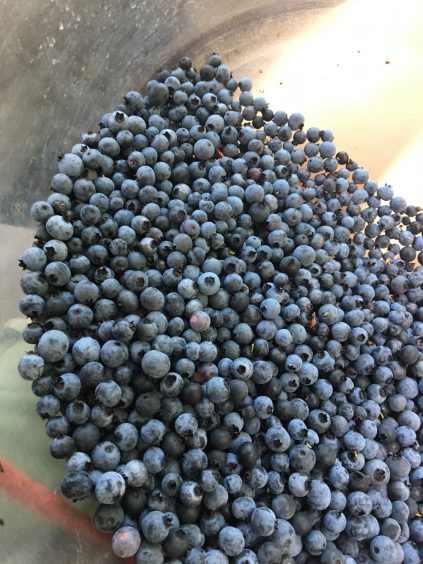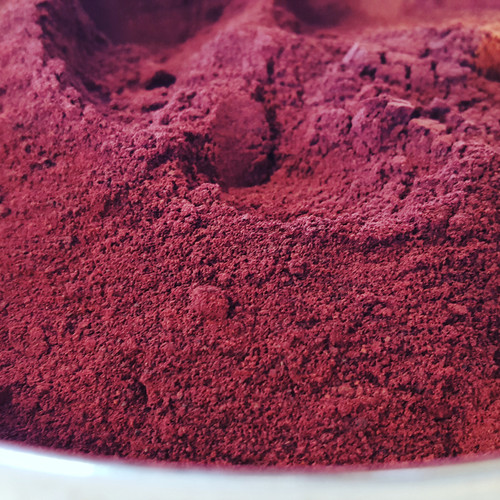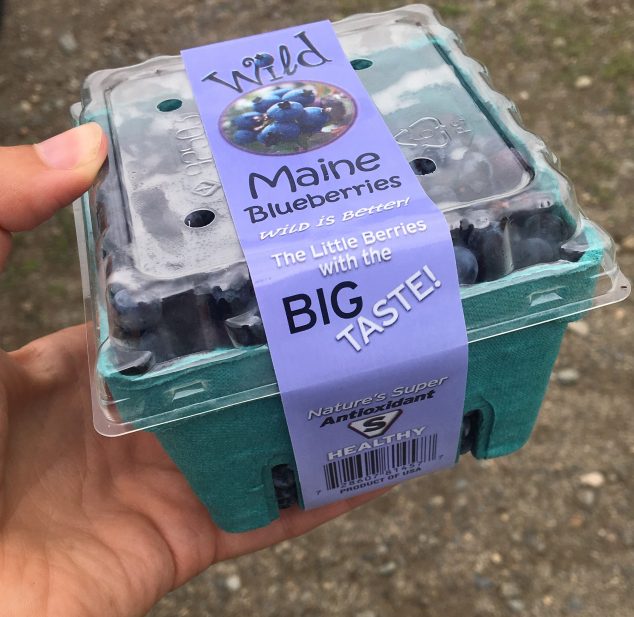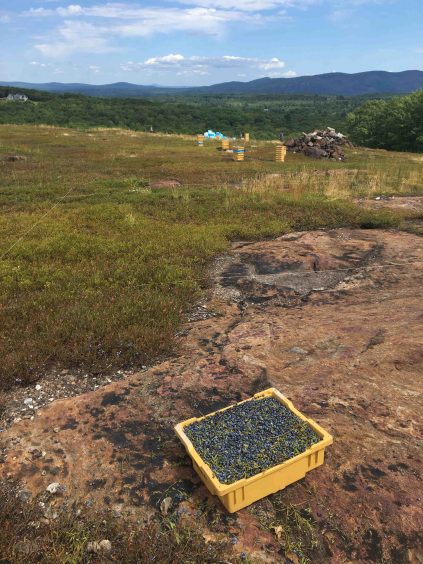Quality and Food Safety
To produce the highest quality IQF blueberries, the fruit should not be subjected to high drops when harvesting, winnowing or processing. The fruit should not be allowed to remain in the field or processing plant for long periods of time prior to freezing. Shortening the time between harvesting and freezing, and possibly hydro-cooling the blueberries in the field and/or plant, should produce high-quality IQF berries.
Minimizing damage to the fruit membrane (skin) is essential to maintain the highest quality IQF blueberry. Ruptures in the membrane that occur during pre- and post-processing handling lessens berry quality while in frozen storage. These changes include a loss in internal sugars, a toughening of the blueberries and an increase in drip loss (loss in liquid from blueberries upon thawing).
Temperature of frozen storage is extremely important in maintaining the quality of IQF blueberries. The fruit should be kept at a temperature of -20 degrees C or lower. Studies also show that temperature fluctuations in frozen storage must be minimized to avoid adverse chemical and physical changes in blueberry quality. These changes include 1) migration of sugar from the center of the berry to the periphery, 2) increased drip loss, 3) toughening and 4) increased block freezing (individual berries frozen together).
Further observation indicated that fruit which is higher in moisture before and after processing provides better quality IQF blueberries in terms of color, texture and sugar content over time in storage. These results must be balanced against the effect excess swelling of the fruit can have on the quality grade of the fruit.
– Alfred A. Bushway, Associate Professor of Food Science, and Rodney J. Bushway, Professor of Food Science, in cooperation with Tom DeGomez, Extension Blueberry Specialist, The University of Maine, Orono, ME 04469. February 1990.
Information in this publication is provided purely for educational purposes. No responsibility is assumed for any problems associated with the use of products or services mentioned. No endorsement of products or companies is intended, nor is criticism of unnamed products or companies implied.
© 2020
Call 800.287.0274 (in Maine), or 207.581.3188, for information on publications and program offerings from University of Maine Cooperative Extension, or visit extension.umaine.edu.
The University of Maine is an EEO/AA employer, and does not discriminate on the grounds of race, color, religion, sex, sexual orientation, transgender status, gender expression, national origin, citizenship status, age, disability, genetic information or veteran’s status in employment, education, and all other programs and activities. The following person has been designated to handle inquiries regarding non-discrimination policies: Director of Equal Opportunity, 101 North Stevens Hall, University of Maine, Orono, ME 04469-5754, 207.581.1226, TTY 711 (Maine Relay System).





